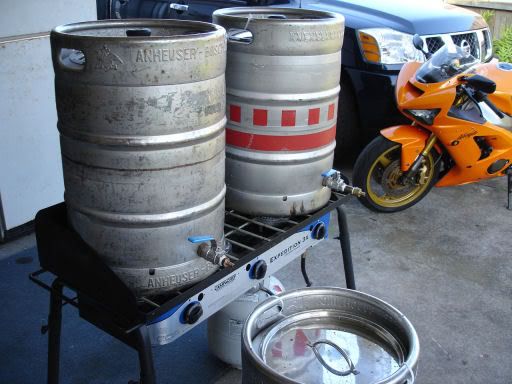CircleC-Brewer
Well-Known Member
I am looking to buy a propane burner, but not sure how many BTUs is recommended or sufficient for batches up to 10 gallons? I have seen burners that offer 210,000 BTUs. Are they propane guzzlers? What are the benefits of high or low pressure burners?
Just trying to balance the BTU output with the operating cost.
Circle C Brewer
Just trying to balance the BTU output with the operating cost.
Circle C Brewer



